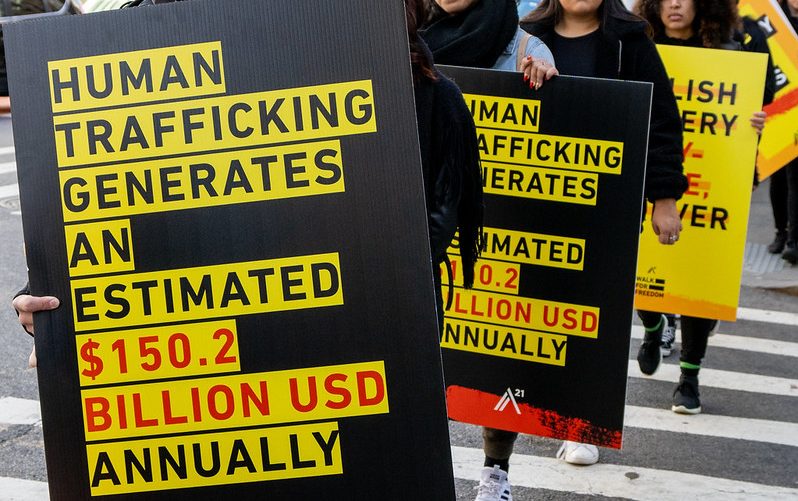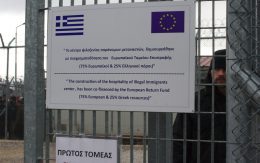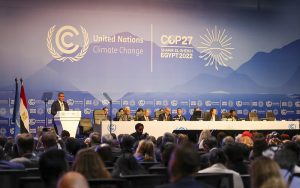Sex trafficking and child sex trafficking is an incredibly serious issue within the larger context of human trafficking. It is an issue that transcends international borders and involves perpetrators across “racial, ethnic, and gender demographics”. Of all human trafficking victims worldwide, some 27% are children and are used for forced or sexual labor.
There is no denying that child sex trafficking is a serious human rights issue and combatting it should be (and already is in many cases) a priority for all international organizations and nation-state governments. There is also no denying that this issue is often not placed at the forefront of mainstream Hollywood films; if they are, like in films such as Taken (2008) they are quite problematic.
The recent release of Sound of Freedom has changed that.
A Sound of Freedom
The two-hour and fifteen-minute film released on the Fourth of July raked in $14 million USD which against fourteen and a half-million-dollar budget stands a “better chance of reaping the fortune and glory that comes with profitability”. Rotten Tomatoes, one of the most popular and widely cited review aggregate websites for film and television, currently lists the crime drama film as holding a 75% fresh rating and an audience score of 99%. The film has even been praised by respected film critics like Owen Gleiberman in addition to general conservatives.
According to Angel Studios, the production company which produced and developed Sound of Freedom, the film is “based on the real-life events surrounding the remarkable work of Tim Ballard” a former Special Agent of the Immigration and Customs Enforcement (ICE) under the U.S. Department of Homeland Security (DHS) for twelve years before he left to found the private non-governmental humanitarian organization Operation Underground Railroad (OUR) in 2013.
The film specifically details a mission Ballard undertook in Colombia to save trafficked children, doing so at the risk of his own job. Ballard and OUR were heavily involved and consulted for the film, noting that most of the film’s content is true on their official website.
The film’s focus on child sex trafficking is in no way an issue, in fact it is quite commendable to focus on a topic that is underrepresented and truly a problem for individuals, families, and governments. However, what is problematic are the very substantial and strong connections the film has to damaging and baseless conspiracy theories popular on the far-right and right-wing of American politics.
Tim Ballard’s Operation Underground Railroad (OUR) and Truth vs. Fiction
While the story behind the film is accurate as far as is publicly known, Ballard and OUR have been involved in a substantial amount of stretching of the truth about their operations. As reported in a lengthy investigation by VICE News in 2020, OUR has repeatedly exaggerated, fictionalized, or overstated their importance in many overseas investigations. Quoting from them, VICE reported that OUR, through Ballard (then the CEO), “claimed that OUR played a central role in a large anti-trafficking case in New York State and implied that it helped rescue a victim in that case when in fact, according to court transcripts and other records … bravely escaped her trafficker on her own” only being contacted by OUR days before she was set to testify against her traffickers in open court.
In this aftermath, Ballard repeatedly gave interviews claiming that OUR had saved the victim (including twice lowering her age, claiming she had been kidnapped and groomed, and stating she had been trafficked more recently than documents showed) and used this case often to justify the construction of a border wall. While lawyers from the U.S. Attorney’s Office and those involved in the case declined to comment, official agencies from the State of New York and other non-profits focusing on fighting human trafficking and who were familiar with the victim’s case all either “couldn’t confirm any details [or] were unfamiliar with both the case as Ballard described it and OUR”.
Another compelling aspect of VICE’s investigation are the finances behind OUR. In 2018 and 2019, OUR gained nearly $40 million USD through fundraising, grants, and donations. For 2018 alone, “Ballard made $343,022, while all other chief executives made between $100,000 and $180,000 [while reportedly] giving out just $362,633 in grants and other forms of domestic assistance” while also uncovering that most of the organizations connected to or underneath OUR are all for-profit entities.
OUR’s methods and tactics in operations has also come under scrutiny by international observers, experts, and even those who joined the organization in a desire to do good. Police departments in the United States who have received multiple donations from the group have critiqued them. Over a period of years, the Washington State Patrol received some $200,000 USD from OUR yet discontinued their association with them due to the politicized nature of their work and statements. Other police departments from Florida to Oregon reported accepting donations from OUR (or providing dogs for community events sponsored by OUR) and denied ever having engaged in an official, law enforcement, tactical operation focusing on ending human trafficking or catching perpetrators. Nonetheless, OUR touted these relationships as actively stopping human trafficking on social media and in press releases.
Perhaps one of OUR’s most notable incidents came with a raid in the Dominican Republic in 2015 which involved over twenty children.
One participant in the raid was a then 28-year-old mother and blogger whom Ballard had invited to document the operation. She documented how a television film crew was there to document the entire sting which “Ballard seemed to intend to pitch [as a] TV series about his anti-trafficking efforts” which proceeded to film as Dominican police raided the home, arrested the traffickers, and took the children away.
The appearance of television crews and cameras is a common occurrence for OUR, with another individual on a separate mission stating “[Ballard’s] not making decisions tactically. He’s making decisions like a reality TV producer. And so he starts running around the village like an idiot. The cameras are following him. He’s drawing so much attention to himself.”
The participant remained in contact with the group for some time afterward, yet noticed that most of their conference calls “talked mostly about fundraising. The calls never addressed real things children need to be saved from”.
An unknown, but sizeable grouping of the girls rescued “were on their own a week later” after the raid; this was known to OUR prior to the raid taking place as the human rights focused NGO International Justice Mission (IJM) “asked OUR to consider a smaller operation “knowing that the Dominican government didn’t have the capacity to house the number of victims that they were expecting to rescue.” [with OUR insisting] “it was the government’s call”.
Anne Gallagher, an academic, lawyer, and advisor focusing on human smuggling and trafficking for the United Nations (UN) from 1992 to 2003, wrote in 2015 on the same raid that they lacked the necessary training and likely did more harm than good. Gallagher writes,
“First, the entire premise of its operations: that local law enforcement will take over when the dirty work has been done is dangerously naïve … The simplest explanation is law enforcement complicity in such crimes. Agreeing to cooperate with OUR is a win-win: local cops get to keep an eye on what’s happening and ensure OUR doesn’t stray into their turf; they also gain international kudos for taking on the traffickers … The targeting of low-level offenders (recruiters and pimps) also reveals an alarming lack of understanding about how sophisticated criminal trafficking networks must be approached and dismantled”
This allegation of being poorly trained is corroborated by former members. In another, separate VICE investigation, former members of OUR who went on multiple missions detailed how there was nothing resembling any legitimate military or police operation with “no meaningful surveillance or identification of targets; no development of assets; no validating that people they sought to rescue had in fact been trafficked, or that people they were targeting were indeed traffickers”. These members stated how they would ask pimps for girls, occasionally be presented with prostitutes of age, request younger aged girls, then be brought those “potentially lead to girls being trafficked who otherwise wouldn’t have been”.
Gallagher also brings up an exceptional question: why is OUR not performing these kinds of raids on U.S. soil, where human trafficking and child sex exploitation specifically are quite substantial? Gallagher states quite simply that if OUR were to perform their tactics in the U.S. they “would be arrested on the spot” with courts in London, Amsterdam, or the United States not hesitating “to throw out a case that rests on the evidence of an OUR-type raid because of the failure to meet even the most basic standards of supervision and accountability” in addition to their fact that their actions could easily constitute entrapment.
Other tactics in place by OUR is that they have at least once used an Utah-based psychic medium to assist in a mission along the Haitian-Dominican border which proved to be unsuccessful.
From a practical, criminal justice standpoint, OUR seems to be deliberately taking advantage of the overburdened, malfunctioning criminal justice systems and corrupt governments abroad in order to conduct their operations while overstating their own importance and effectiveness as an anti-child trafficking organization and gaining increased funds and donations while seemingly doing little to truly combat human and child trafficking.
The evidence showing OUR’s ineffectiveness appears quite substantial. Even more damaging is their noncommittal to distance themselves from right-wing conspiracies like QAnon.
For those uninitiated, QAnon is a conspiracy theory whose adherents believe “that U.S. Pres. Donald Trump was waging a secret war against a cabal of satanic cannibalistic pedophiles within Hollywood, the Democratic Party, and the so-called “deep state” within the United States government” which has roots in anti-Semitic conspiracies such as the baseless “blood libel” theory which has been used time and again throughout history to justice abuses against the Jewish people.
The vast majority of anti-human trafficking and anti-child sex exploitation groups have disavowed QAnon and done an impressive amount of work to distance themselves from individuals, groups, and other organizations who espouse such beliefs. OUR has not.
In August of 2020, Ballard, when interviewed by The New York Times stated “Some of these theories have allowed people to open their eyes. So now it’s our job to flood the space with real information so the facts can be shared”. A few weeks later, Ballard “treated the false and QAnon-supported conspiracy theory that furniture retailer/marketplace Wayfair was a child trafficking hub as a legitimate concern” in posts on social media.
Further compounding this is the fact that actor Jim Caviezel (who portrays Ballard in the film Sound of Freedom) spoke in 2021 at the Health and Freedom Conference (alongside fixtures on the American right-wing like Mike Lindell, Lin Wood, and Sidney Powell) in which he promoted the belief of adrenochroming, a conviction at the center of QAnon “that liberal elites and members of Hollywood are secretly killing children in order to harvest adrenochrome from their blood for psychedelic experiences, satanic rituals, and even to extend their lifespan”. Caviezel’s statements immediately before referencing the adrenochroming refer directly to Ballard and OUR.
When pressed on the strong right-wing associations by VICE, OUR issued a statement saying that they were “not affiliated with the group QAnon in any way, shape or form, and to date we have had no interaction with them” which itself does not exactly denounce the theory. The statement also included a comment from Ballard stating the Wayfair theory has been “debunked” yet continued to maintain that children can be bought and sold online, effectively leaving the door open for him and OUR to again promulgate the belief.
Even some reviewers for the film have been noticing a similar trend in the filmmaking style and overall “call to action” at the end of Sound of Freedom.
Nick Allen, a senior editor at RogerEbert.com, named for one of the most well-known film critics in the U.S. until his death in 2013, writes that the film “takes place in, and posits to be, a tough conversation piece about the world of child sex trafficking, but it’s hardly any more informational than a horror movie about bogeymen” noting that in spite of some facts presented during the end credits, the overall delivery and constant urge to get more people to see the film results in “little transparency here about how seeing [Sound of Freedom] can help stop child sex trafficking, as this movie suggests … [becoming] misguided and making the cause about itself”.
Due to this, OUR stands to gain an even greater following and massive amount of adherents to their cause, solidifying the mystique and legend as a preeminent anti-child trafficking organization, in spite of evidence to the contrary. All while groups like Anti-Slavery International, Polaris, and Coalition Against Trafficking in Women, groups that properly combat human and child trafficking, are left without those needed funds.
Submit here
The Effects of Sound of Freedom
It should be clear by now that OUR is an organization that, having been active for over a decade now, has a shoddy track record. They have a wealth of funds to work towards their goal, attract star power from Hollywood and Washington, and a drive to undertake dangerous missions for a worthy cause. However, with a critical eye into their operations, history, and overall methodology, one can find that they are a group more concerned about their own public appearance and notoriety than truly caring for the well-being of those they “rescue”. Their actions show a desire to enter a foreign land, do some kind of good in a thrilling and publicized way, then return home. In effect, OUR and the film itself is the epitome of the white savior narrative all too common in filmmaking.
Film has a responsibility to moviegoers and society as a whole. The images and sounds we see in film and represented on the big screen shape a massive amount of how we view the world around us.
Films like Sound of Freedom which portray such a controversial group in a positive light, omitting potentially damaging aspects of their work or whitewashing their overall intent reflects poorly upon society’s understanding of the subject matter as a whole. Not only are viewers being fed confirmation of their biases and beliefs, they are being led into believing that Sound of Freedom is properly depicting the fight against human trafficking and that OUR does measurably good work in this field.
Correcting these misconceptions and putting true narratives to film contributes to a better society and a more informed populace. Being socially and politically conscious filmmaker is perhaps one of the most important traits a filmmaker can have. In spite of the well-publicized cases throughout film history of such instances of being socially and politically blind to films’ inherently effective properties (e.g., The Birth of a Nation, The Green Berets, JFK), this is still something that the film industry and Hollywood will struggle with as long as these films continue to be profitable.








Be First to Comment